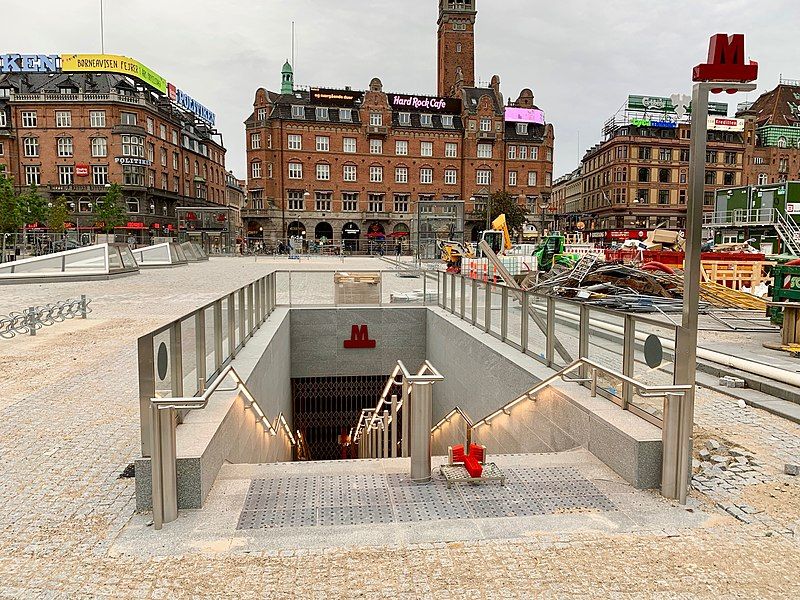City Hall Square, known locally as Rådhuspladsen, is usually one of the more lively areas of the city on New Year’s Eve.
It’s often described as a ‘battlezone’ thanks to the unorganised barrage of fireworks on display (see video below).
But because of the COVID-19 pandemic, the square promises to be considerably less rambunctious this year.
READ ALSO: Nationwide COVID-19 restrictions to be extended until January 17
Fences and fines
Earlier this week, the City Police announced that the square would be closed for New Year’s Eve shenanigans.
To limit activity, a large portion of the square has been fenced off and the police will be on hand to issue fines to anyone caught trying to jump the fence.
It will still be possible to cross on foot and bicycle via a narrow passageway, while the Metro station will also be accessible to the public.
The measures will last from 16:00 on December 31 until 09:30 on January 1.
As part of its decision to extend COVID-19 measures until January 17, the government recommended that residents cancel New Year’s Eve parties.















